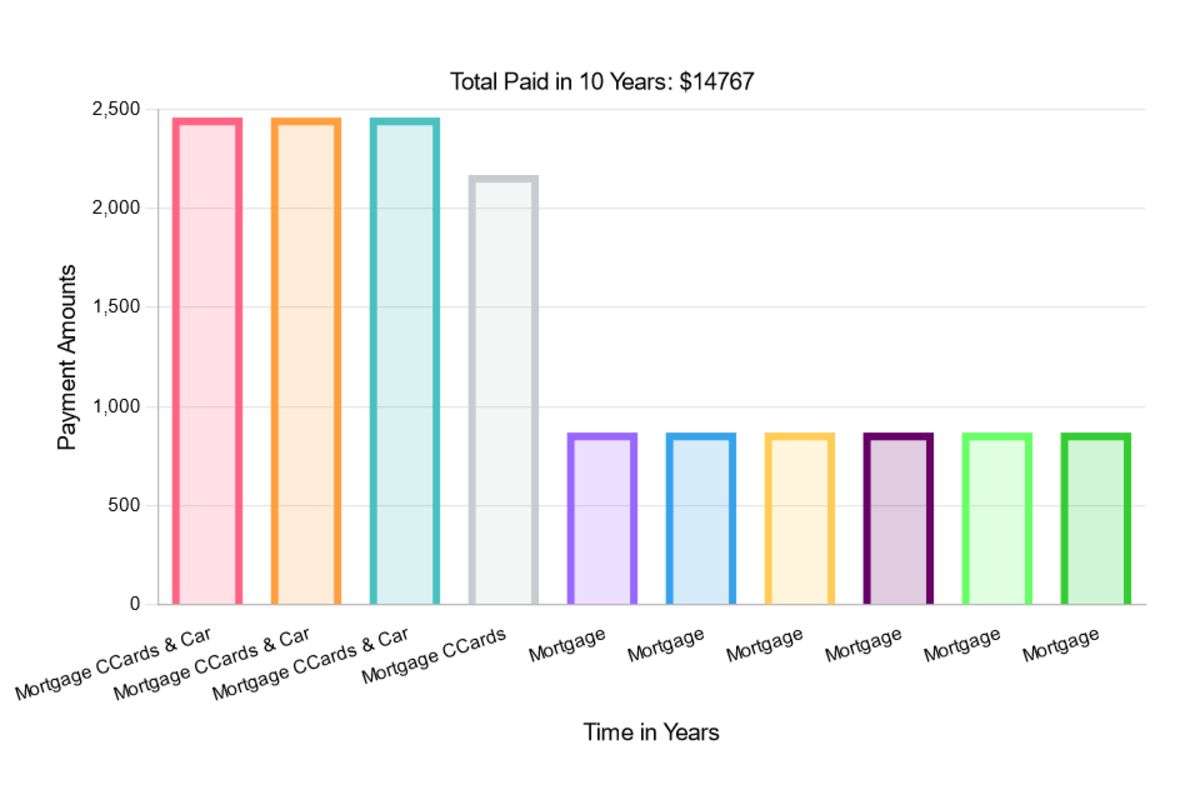The New Credit Card Debt Laws - What You Need to Know
The New Credit Card Debt Law Isn't All Good
The new credit card debt laws have some good things for consumers, but often laws restricting business in a free market can have unintended consequences. The new credit card debt law called The Credit Card Accountability Responsibility and Disclosure Act of 2009 was signed by the President earlier this year. It will not take effect until February 22, 2010. When it takes effect it will correct certain questionable business practices of the credit card issuers, but what about the effects on those customers who are responsible with their credit? There are some potential negative outcomes of the new credit card debt law legislation for them.
I have another Hub, The New Credit Card Laws 2009 which explores the positives for consumers. If you are interested in how this new credit card law could possibly be bad continue reading here.

The new credit card debt law is supposed to amend the Truth in Lending Act and targets unfair and deceptive practices by credit card companies. The legislation includes restrictions on retroactive rate increases, bans double-cycle billing, and limits how issuers are allowed to apply payments to balances with multiple rates on one credit card account. While many consumers are happy with the new laws, there are many others who say the credit companies will make up the difference by cutting rebates and awards programs along with charging annual fees, effectively penalizing those who have been responsible users of credit.
Under The New Credit Card Law Banks Will Raise Fees and Restrict Credit
Since the new credit card debt law will end the practice known as universal default (which is where a creditor could raise your rate if you default on another credit obligation, even if you always paid the current creditor on time), banks say they will have to make up their losses some other way. These losses the credit card companies are claiming they will suffer are mostly due to not being able to retroactively charge interest on existing balances. Under the new law issuers are required to give 45 days notice of rate increases and aren't allowed to increase your rate at all in the first 12 months of a new card except under certain defined circumstances such as default on payments or a teaser rate expiration.
The unfortunate side effect
of this for the consumer who does a good job managing their credit is
that they may see their rates going up. Some of you may have already
gotten notices of rate increases from your credit card issuers. Many
say that this will result in those who are responsible with their credit subsidizing those who are not. Another increase could be in
the various fees that are charged. Where currently a credit card issuer
charges, for example, $39 for late fees, they may raise this to $50 or more. If
you sometimes forget to pay or have trouble making payments by the
due date, then be prepared for it to cost you more when you are late. It may also be
more difficult to get approved for a credit card in the future due to
the banks needing to make up for the losses incurred by those who
default and are written off so the criteria for approval will likely be tighter.
Banks Will Try to Get Around The New Credit Card Debt Laws
As part of the new credit card debt laws Regulation Z, which implements the Truth in Lending Act will be changed requiring issuers to provide certain disclosures upon opening a new account and at least 45 days notice prior to certain changes. The required notifications include changes in APR and billing cycle as well as certain categories of fees. These include annual fees, transaction fees (for activities such as balance transfers, cash advances and currency conversion), penalty fees and minimum finance charges. Issuers are also only required to notify cardholders about changes to their credit limits if the new limit would trigger an over the limit fee or a penalty rate. There is concern that since the fees that require notification are in the specifics of the legislation, that credit card companies may just come up with new ones to get around the disclosure requirements.
Congress could have enacted the new credit card debt laws immediately if they wanted to. Instead, they wrote the bill to give the credit card companies 9 months to comply with the provisions. This gives the credit card companies plenty of time to raise rates, increase fees, and virtually whatever else they want to do to customers that is currently legal, effectively nullifying some of the effectiveness of the regulations.
One thing many issuers are doing now is changing how the required minimum monthly payment is figured. Often consumers are only looking at the annual percentage rate on a card, but depending on the balance, the percentage requirement specified for the allowed monthly minimum payment may make much more difference in how expensive a card is. For example: you carry a $10,000 balance and the minimum monthly payment is figured on 2% of that balance. You're required to pay $200 as your minimum regardless of your annual percentage rate. Let's suppose, as is already happening, that rate goes up to 5%. Your minimum monthly payment just went up two and a half times to $500. You may end up defaulting and hurting your credit before the new credit card debt laws have a chance to take effect.
Consumer advocates are largely in favor of the new rules, but say that they don't cover all of the abuses in the industry. Fees and rates are not capped so if you do pay late after the first year the credit card companies can raise your interest rate for all new charges, as long as they provide a 45-day notice. Since there is not a cap, you could be paying a rate triple the previous rate, and late fees could end up being $100 per occurance.
It is possible that, while these negatives remain, the net benefit to consumers could be positive if credit card issuers promote positive, customer-friendly practices. They may have to settle for lower profits in exchange for greater customer goodwill, but in the long run more customers certainly shouldn't hurt the bottom line. Like most other things in our current system, competition is usually better for the consumer. Changing the rules just means that credit card companies have to adjust to stay ahead. The ones that can adapt are the ones that will win more customers and a enjoy a healthier balance sheet.








